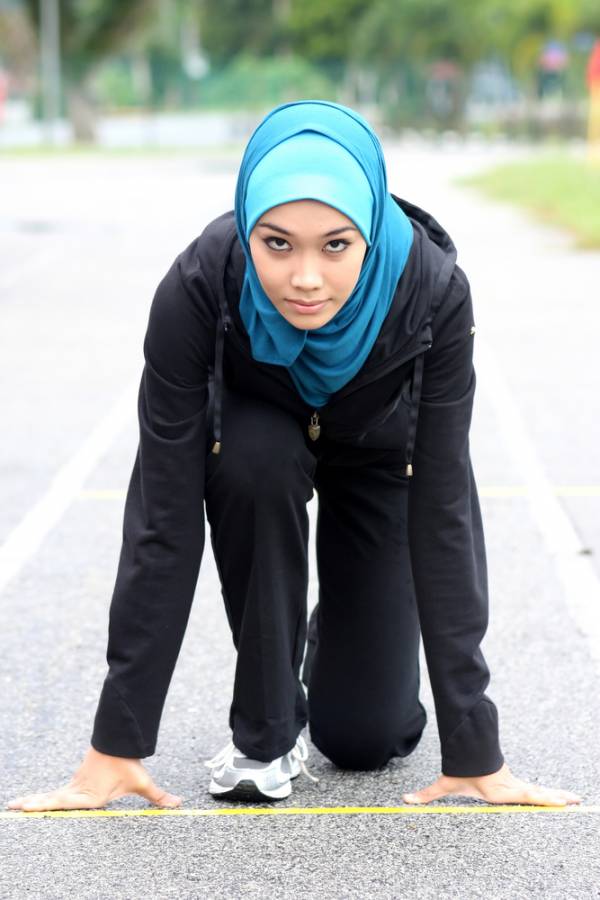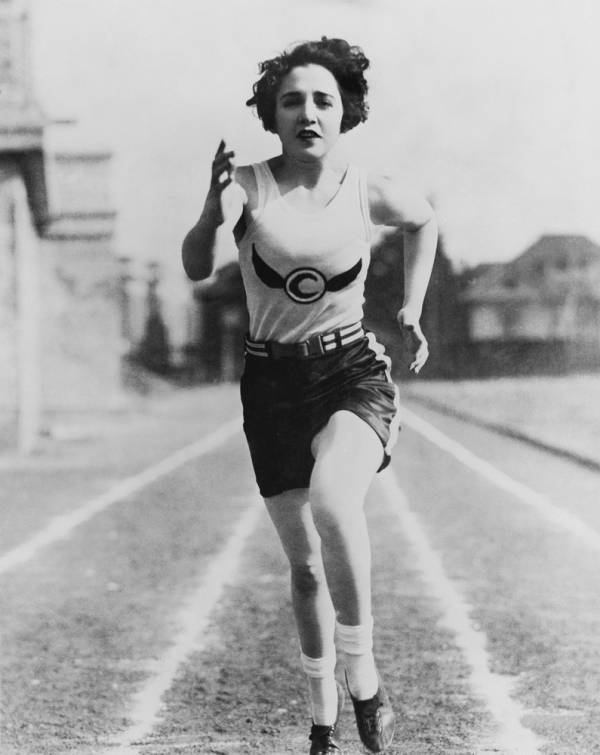Baron Pierre de Coubertin triumphantly revived the modern-day Olympics in 1896 declaring, “All sports must be treated on the basis of equality.”1 As to why women weren’t allowed to compete in these first Games, de Coubertin explained that allowing women is “impractical, uninteresting, unaesthetic and incorrect.”
I guess he didn’t mean equality equality. Even the ancient Olympic Games added the Heraea Games in 6 BC for women athletes to compete in honor of goddess Hera. This is not to say that the ancient Games were equal, but did we really have to start from scratch 2,300 years later, Pierre?
We were first allowed to compete in the 1900 Olympic Games in tennis and golf wearing long gowns. We wore long, wool garments when we were allowed to compete in swimming in 1912.
The International Olympic Committee (IOC) was possibly trying to drown us rather than keep us decent. In 1928, women competed in track and field events for the first time, but “because of the exhausted condition of some of the women at the end of the 800 meter final, [women’s track & field] was dropped from the Olympic program until 1960.” God forbid we should breathe hard and sweat at the end of competition.
We’ve been tossed sports throughout the years ever since. The latest being: the introduction of women’s shooting events and the marathon in 1984, and then women’s judo in 1992.
We couldn’t compete in Olympic weightlifting or the hammer throw (yes, this is still a sport) until 2000. 2012 marks the first year women will compete in boxing at the Olympic level.
As we celebrate the thirtieth Olympic Games, we are still setting significant milestones for women in the Olympics. One hundred and sixteen years after the Games’ modern-day revival, we are still fighting to prove our legitimacy as athletes at every level.
We are on the most level playing field since the inception of the Olympics. For the first time, every country represented now has a female athlete participating. For the first time, every sport is now represented also by a female counterpart.
That’s not to say there are still some adjustments left to be made. Among them, the 100-strong IOC has only 14 women, though one of these women, former hurdles champion Nawal El Moutawakel of Morocco, became the first woman to be elected a vice president.
And then there’s the embarrassing fact that this year both Australia and Japan flew their female athletes economy class while the men sat at the front of the plane.
This is despite the fact that the Japanese women’s soccer team is the world champion – the men’s is not – and the celebrated Australian women’s basketball team has medaled in the last three Olympics.
The men’s team has never medaled. “It should have been the other way around,” said 2011 FIFA women’s world player of the year Homare Sawa. “Even just in terms of age we are senior.”3
Other firsts for women this year include
- The U.S. Olympic Team, for the first time, has more women competitors than men: 269 to 261. The Russian team is also majorly female.
- These Games will feature the most pregnant athlete to compete in an Olympics, Malaysian shooter Nur Suryani Mohamed Taibi, who is due to give birth to a girl any day now.
Many Arab female athletes are setting firsts this year including
- Goksu Uctas is the first Turkish woman to ever compete in gymnastics. Since Turkey has no gymnastics team and therefore no other female gymnast has gone to the Olympics before, Uctas researched online how to get herself qualified.
- 17-year-old Khadija Mohammed is the first female weightlifter to represent the United Arab Emirates, and she is the first from the Middle East to qualify outright in weightlifting.4
- Egypt, despite its political instability, will send thirty-four female athletes, the largest delegation it has ever sent. This is the largest any Muslim nation has sent.

The most glaring milestone this year is the inclusion of female athletes from the last three countries that have never included women before: Saudi Arabia, Brunei, and Qatar.
Only three weeks ago did Saudi Arabia even reach the decision to include the two athletes, 800m runner Sarah Attar, who grew up in California, and judo heavyweight Wojdan Ali Seraj Abdulrahim Shaherkani, who cannot train within the Saudi kingdom – it is illegal.
At the time of this article, there was still speculation whether Shakerkani would withdraw from the Olympics if she is not allowed to wear the hijab, her head scarf, which was one of the stipulations that the Prince of Saudi Arabia put on the athletes if they were to compete. Attar will run with a more turban-like head cover. The IOC is debating the safety of a head scarf in a judo match.
Though many Saudis have cautiously praised the athletes, conservatives and clerics have blasted the women online calling them a disgrace and “Olympic whores,” going so far as to claim that the women will fall down on purpose to expose themselves.
These athletes live with this turmoil daily. Before they came into the world’s view, way before these Olympics, these women trained in a sport they loved despite constant contention.
They trained anyway and become better without any certainty that they would ever be tapped to step into the spotlight. There are countless athletes about whom we will never know.
And for many women from the most conservative countries especially, they’ve had to train secretly, hidden away for fear of death threats and other punishments and humiliation that goes beyond our comprehension.

Most of us fist pumped when we initially heard of the inclusion of the Saudi women, as if the matter was suddenly solved and done. But the issues are so complicated for Arab women that it’s hard to say where these milestones will lead. Is this the beginning or the end?
Girls in Saudi Arabia will not be allowed to watch the Olympics; they cannot even participate in P.E in school.
For the athletes, it is so much to bear – almost too much – to be the first. It forces me to acknowledge all women who have been the first to push their way into their passions no matter the opposition. Even during the very first modern Olympics in 1896, two Greek women who were denied participation in the marathon ran it anyway, unofficially.
I love these kinds of stories. They make me feel triumphant and proud – thankful mostly – but really I can’t imagine the spotlighted scrutiny of being the first.
I’m not sure I could take the cruel criticism of being called a disgrace to my country, culture, and religion. I am possibly not strong enough to constantly hear that I can’t, that I shouldn’t.
I’ve towed the line at a very small level, but I don’t know if I’m brave enough to go through what past or present pioneers must have or do endure. So, I will just be thankful for them and root for them not just for their events, but for their lives beyond these Games.
Photos courtesy of Shutterstock.






